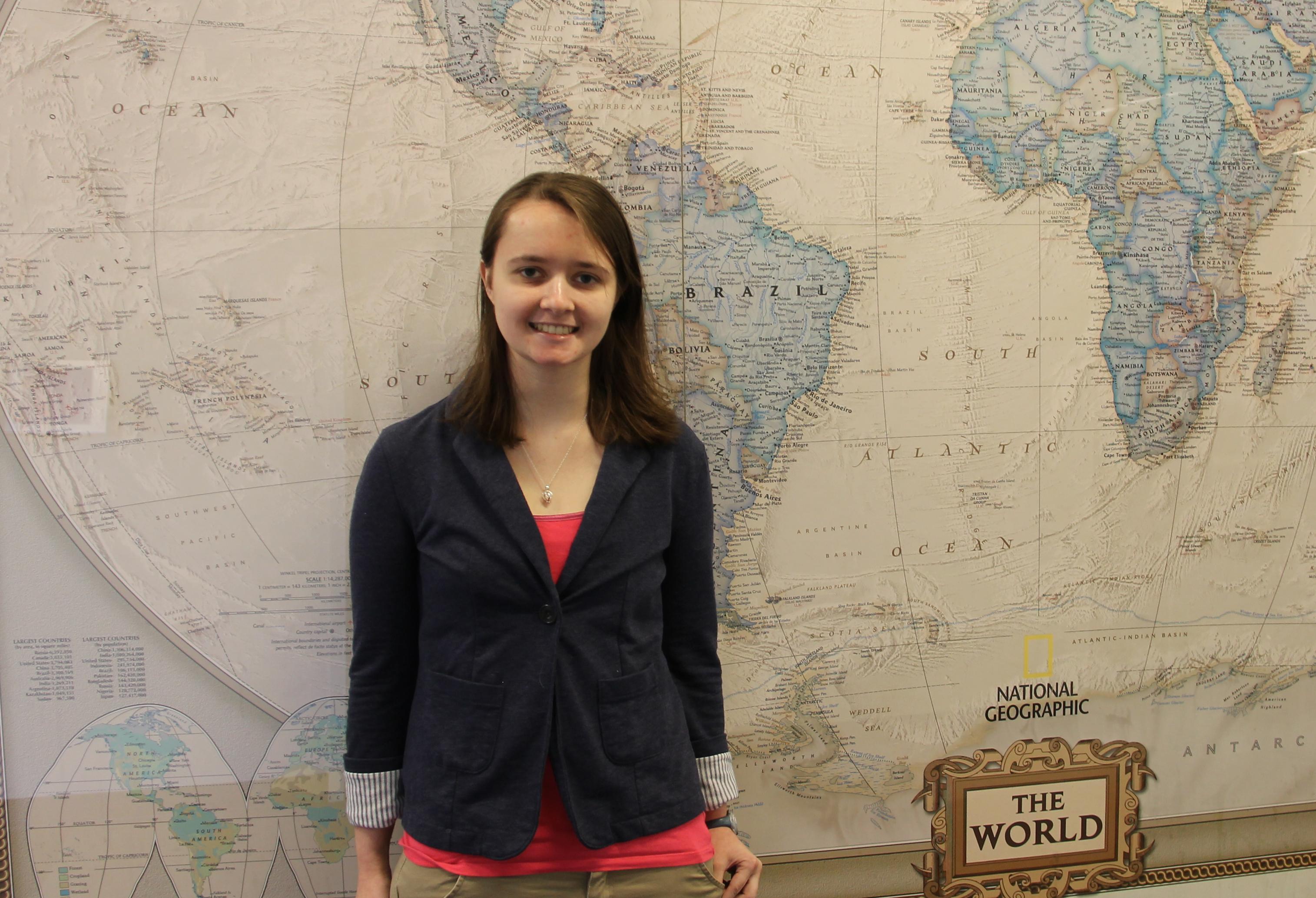

Undergraduate Summer Research Fellows
Students make strides with global research this summer
Undergraduate Researcher: Megan Mair
Mentor: Luiz Ozaki, Ph.D., Center for the Study of Biological Complexity
Research Topic: Longitudinal analyses of malaria parasite infection rate in mosquitoes under malaria elimination scenario in the Brazilian Amazon
Malaria, a deadly disease transmitted by infected mosquitoes, is one that Megan Mair is interested in assisting to eradicate. A rising senior majoring in bioinformatics and minoring in chemistry and statistics, Mair has had an interest in the structure of mosquitoes and their propensity to spread this disease since an early research course introduced her to many aspects of the issue. Her mentor, Luiz Ozaki, Ph.D., associate professor in the Center for the Study of Biological Complexity, will assist her with the project.
Mair’s research will span 8-10 weeks and will entail sorting the sequence analysis results of 1,000 mosquitoes, captured in the Brazilian Amazon state of Rondonia by entomologist Dr. Luiz Herman Gil and his team, and processed with special efforts by Dr. Genimar Julião and Ph.D. student, Anne Meireles. Gil and Julião are researchers at Fundação Oswaldo Cruz in Rondonia, and Meireles is a Ph.D. student at the Federal University of Rondonia (UNIR). Comparisons will be made between the obtained sequences and a database of Plasmodium nucleotide (the parasite causing malaria) sequences using BLAST (Basic Local Alignment Search Tool), which will enable the production of more precise results than ever before.
“We’re going to be sequencing the DNA extracted from these mosquitoes from Brazil,” she said. “And basically what I'm doing with BLAST is identifying what the sequences are so that we will be able to identify whether or not we have Plasmodium sequences within our results.”
During the summer project, Mair will be working with the wet lab component of the project on campus, while Ozaki will further collaborate with the research in Rondônia, Brazil. Ozaki has confidence that Mair’s abilities and understanding of the research will produce tremendous results.
“Megan is the perfect and essential person to execute the project with her strong bioinformatics skills and biology/biochemistry knowledge, as well wet lab training,” Ozaki said. “Her skills are what make possible the analyses and interpretation of the generated data.”
Additional goals are to apply the bioinformatics skills she has learned to a real-world problem and to learn Portuguese, an objective her mentor will assist with as she communicates with her counterparts in Brazil.
Mair views this research opportunity as a means to extend beyond her comfort zone and create experiences that will allow her to grow. This realization pinpoints the meaningful aspects of the research project for her.
“For me personally, I think it's the ability to grow past things that I'm uncomfortable with and that I am already confident in, and to be able to take the initiative to try to learn a new language, to try to do projects on a large scale that I've never even attempted before,” she said. “Just being a part of an extremely difficult research problem in the international community is something that I'm very excited about.”
Mair has a great understanding of delving into an international project such as this, its implications and the underlying necessity for global research.
“Research and science should be conducted with connections to global researchers. It shouldn't just be something that is kept to one specific area because you do not get the whole knowledge that literally the world has to offer,” she said. “So this has been a really good project for me because it's allowed me for the first time to collaborate with people who are not at the university or even within the country that I live. It provides me with the stronger bioinformatics background and allows me to develop those skills that I'll need for graduate school and for the medical research area in the context of an actual real life problem.”